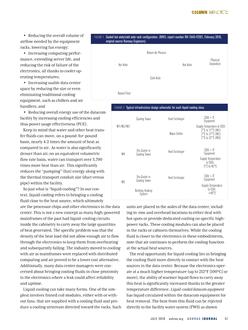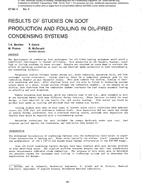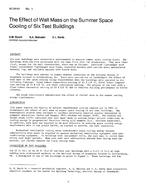An analysis was done on the overall efficiency of a straight fin by treating the driving forces for heat transfer and mass transfer separately. Moisture condensation on the fin surface affects the fin efficiency. Analytical solutions are obtained for the overall fin efficiency when the fin is fully wet and when it is partially wet. Contrary to some numerical and analytical results found in the literature, the present work shows that the overall efficiency of a fully wet fin is nearly independent of the relative humidity of the air. This result can serve to resolve the disagreement in existing literature regarding the dependency of fin efficiency on the relative humidity. It is also shown that only when the fin is partially wet does the overall fin efficiency depend significantly on the relative humidity. In determining the overall fin efficiency, the present work also allows the direct use of the actual experimental data of the heat transfer and mass transfer coefficients, should they be available.
KEYWORDS: efficiency, heat exchangers, heat flow, finned tube heat exchangers, extended surfaces heat exchangers, moisture, condensation, surfaces, wet, dry, relative humidity, dew point, temperature
Citation: ASHRAE Trans. 1994, Vol.100, Part 1, Paper number 3772, 367-374, 7 figs., 6 refs.
Product Details
- Published:
- 1994
- File Size:
- 1 file , 770 KB
- Product Code(s):
- D-17645


